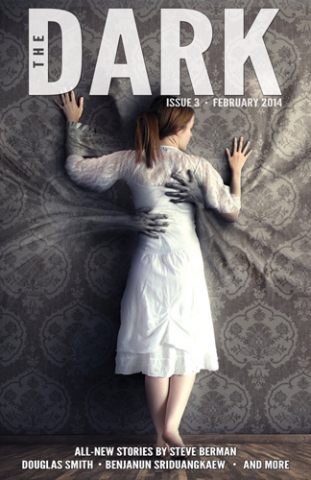 In 2013, I wrote a 32-part (still surprised I had that much to say!) series for Amazing Stories on how to market and sell short fiction. One of my key pieces of advice in that series, which I dealt with in Part 15, was to keep your work in the mail. Don't worry about the story being rejected. Don't worry about the number of rejections it accumulates. Don't worry about how long the story has been circulating. As long as you can find a professional market to send that story to, keep sending it out.
In 2013, I wrote a 32-part (still surprised I had that much to say!) series for Amazing Stories on how to market and sell short fiction. One of my key pieces of advice in that series, which I dealt with in Part 15, was to keep your work in the mail. Don't worry about the story being rejected. Don't worry about the number of rejections it accumulates. Don't worry about how long the story has been circulating. As long as you can find a professional market to send that story to, keep sending it out.
Now in case you wonder if I always follow my own advice, I present for your amusement and edification a recent experience.
Back in November, I sold a story called "Dream Flight" to the new professional magazine The Dark, which is edited by Jack Fisher and Sean Wallace. My story will appear in issue #3 in February, and the very awesome cover is displayed at the right. Even better, I just received the table of contents and discovered that "Dream Flight" will be the lead story.
Excellent and wonderful. It's always a thrill to sell a story, and especially to appear in a new magazine. I've always loved this story, and knew that it would eventually find a home. But this sale brought a special thrill, since I'd written "Dream Flight," well, a while ago.
So how long did it take me to sell this tale?
Wait for it...
Seventeen years. Yep, seventeen years. It was the second story that I ever wrote, and the second of three Heroka stories that I've written (the Heroka are my shapeshifters who also appear in my novel, The Wolf at the End of the World). How many rejections did it accumulate over those seventeen years? Sixty-four.
But I never gave up on it. I kept it in the mail (or, in recent years, the email). And it finally paid off with a sale to a pro market, a lead story, and my name on the cover.
Never give up. Never surrender. And keep it in the mail.
A note on rights for beginning short fiction writers: If you've read my Amazing Stories series, you'll know that I spent a lot of time on making sure that new writers understand the issue of licensing rights for your fiction. Related to that, "Dream Flight" had been published previously, but only in French (in France (Tenebres) and Quebec (Solaris)). It had never been published in English before, so I still retained the First English Rights that The Dark required to purchase the story.
[Update: When I signed my contract for "Dream Flight," The Dark was paying professional rates. However, since then, The Dark has dropped its pay rate to three cents a word, so is now classified as a semi-pro market. Another example of the vagaries and challenges of the short fiction market.]